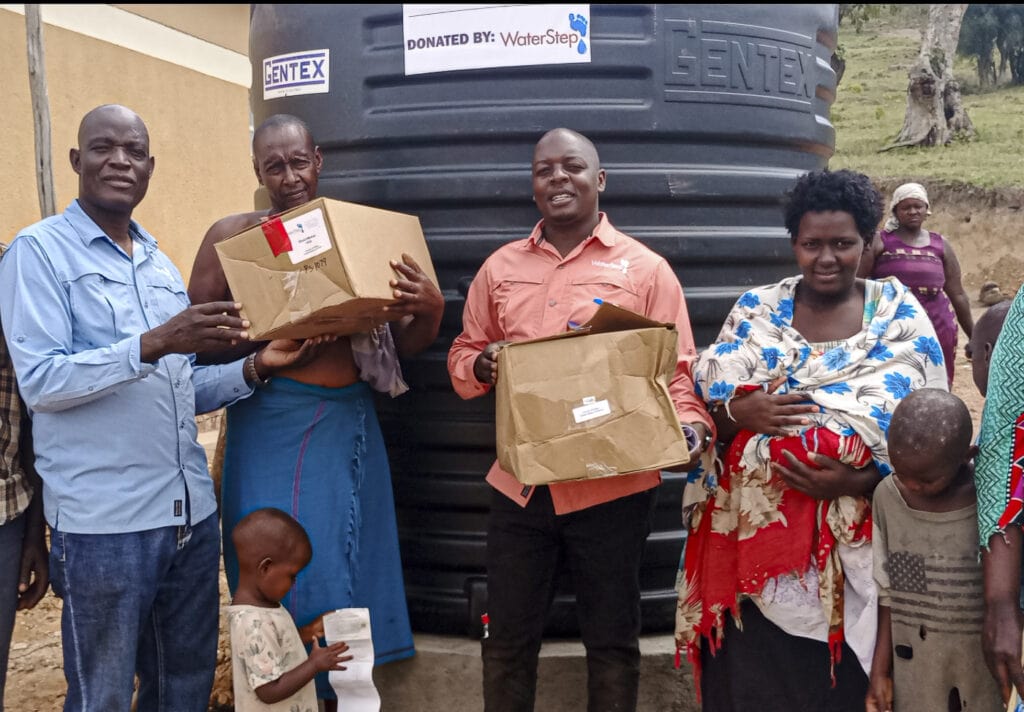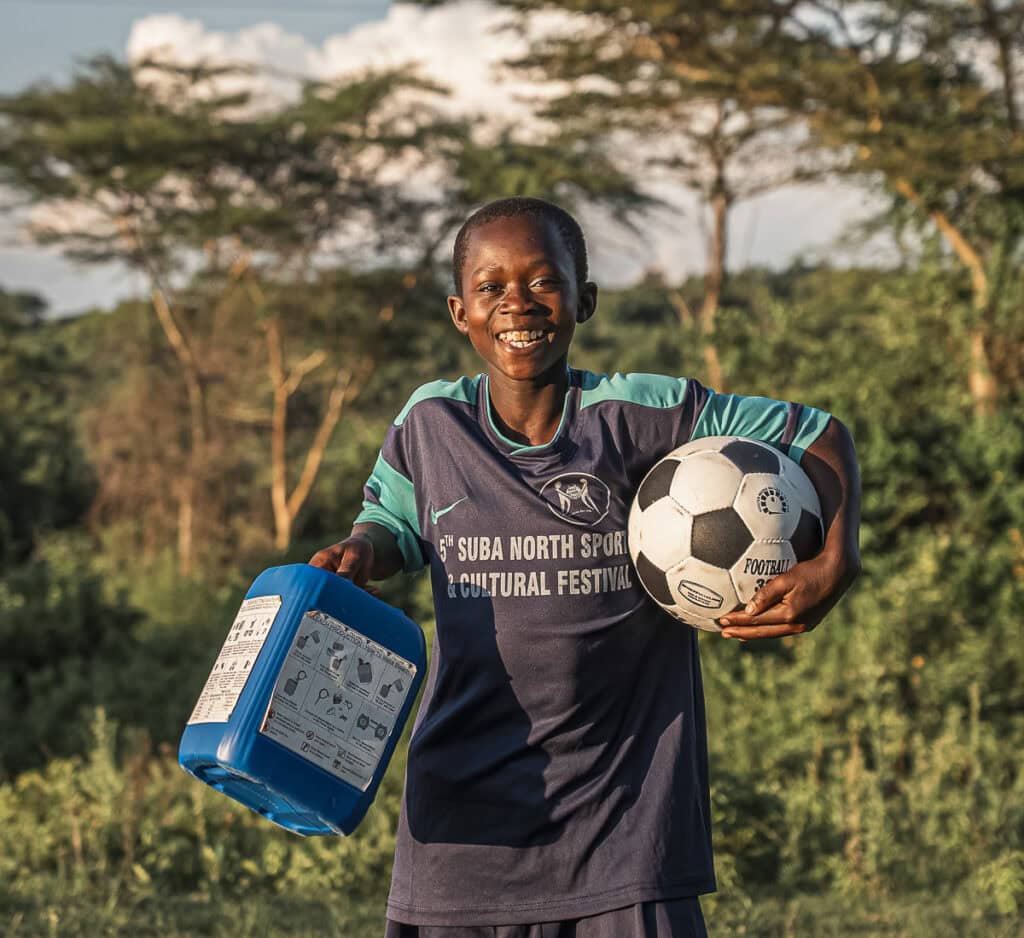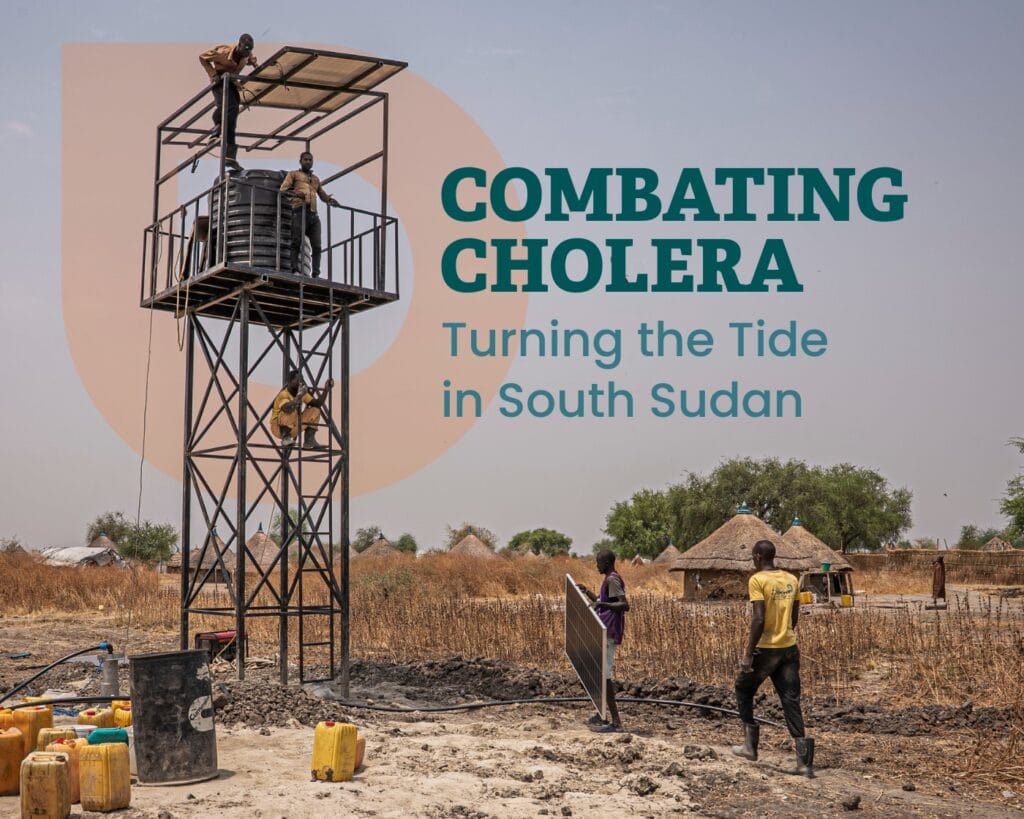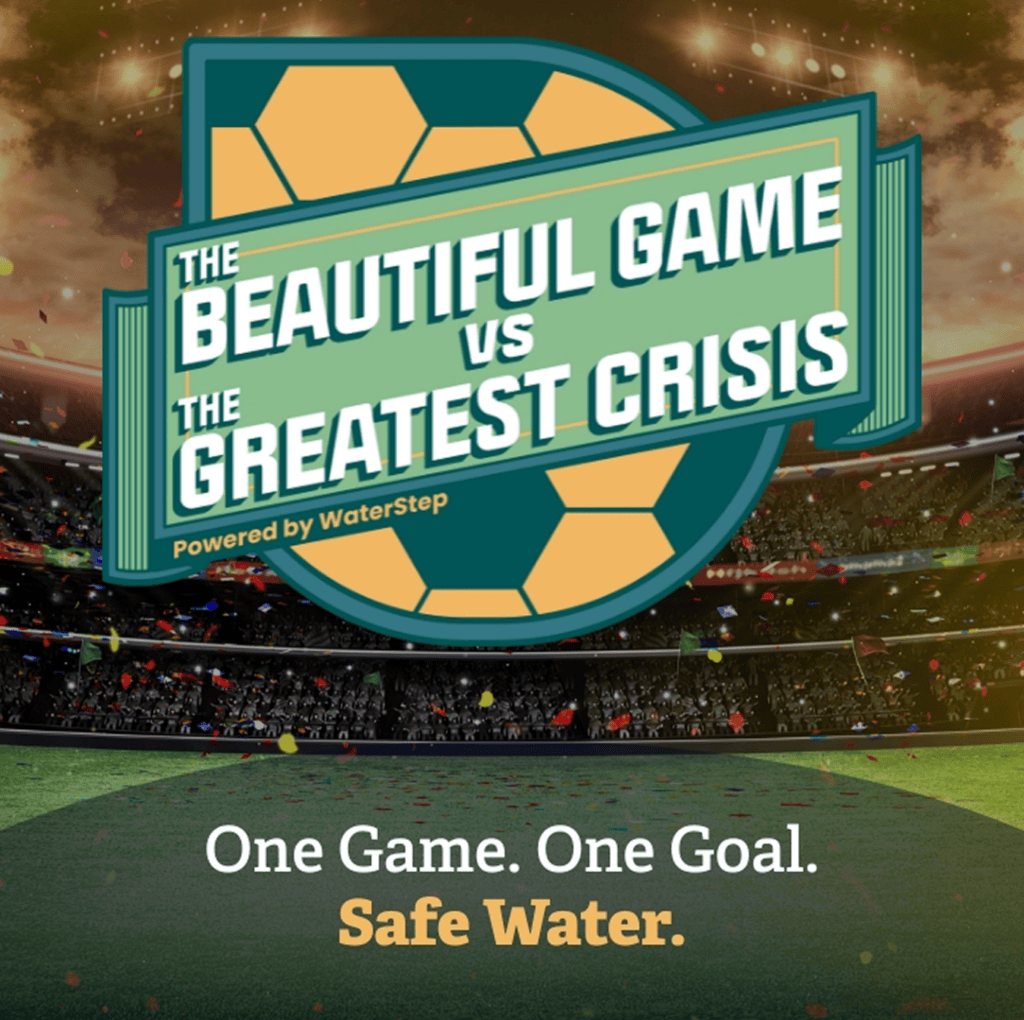Bonded Labor: Safe Water and Dignity in the Brick Factories of Pakistan
“There are many children, especially, who are sick because of the water,”
Haroon Aslam said. “There’s no clean water here.”

/ By Kristina Goetz
Faryad Masih starts his day in the dark in a place where spades and wheelbarrows are his tools. His wife Asia and their four children – Alisa, 12; Muqdas, 10; David, 7; and John, 4 – arrive with him at the brick factory in Pakistan’s southern Punjab Province.
It’s already hot, and temperatures are expected to rise to 113 degrees in these dusty, flat desert fields. Soot covered chimneys spew smoke from the kilns. There’s no safe water, no relief from the sun’s heat, and constant exposure to fumes.
For the next 12 hours, Faryad’s family and others like his will shovel clay into mounds, douse them with water, and mix in sand. They’ll squat and knead the dirt like bread dough with their bare hands. They’ll flop the clump into a mold, shake it, and pull the newly formed brick out and begin again.
1,000 bricks a day. Seven days a week. Row. After row. After row. After row.
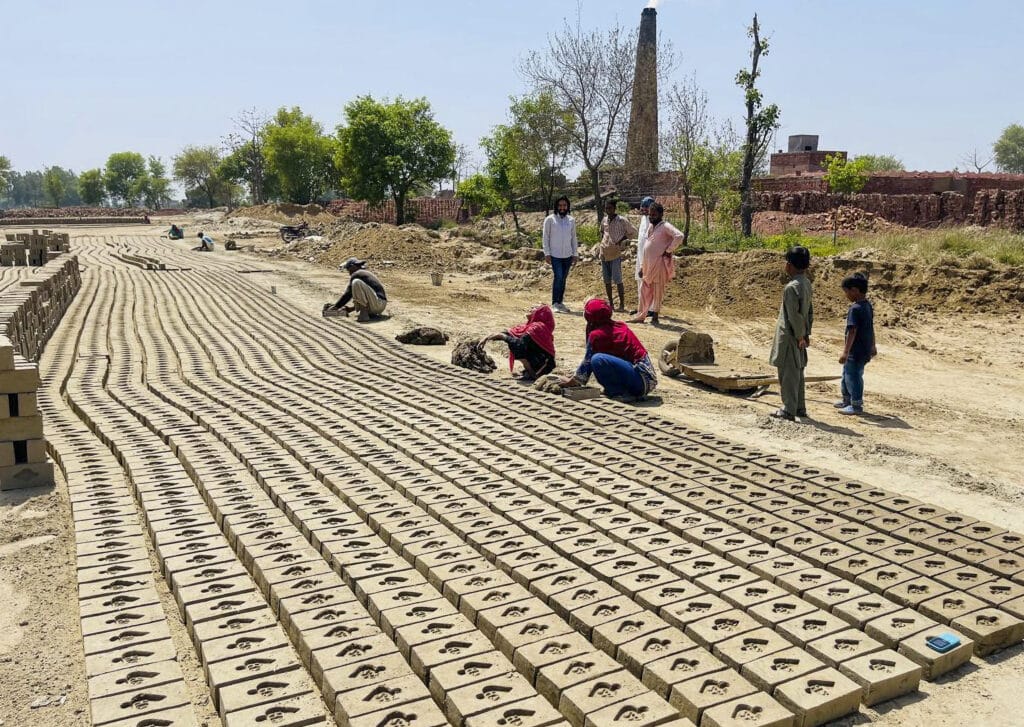
The bricks, marked with the kiln owner’s insignia, dry out in the open, are stacked, and then wait for the kiln.
Brickmaking is all Faryad has ever known. He was born into a family of bonded laborers, he said, a form of debt bondage or modern-day slavery where people are forced to work to repay a loan or cash advance. He started working at the brick factory when he was 10. He’s now 42.
Even a stroke a couple of years ago that weakened his right side has not allowed him to stop working. His family’s debt – which has grown to $2,250 – might as well be $2 million. The family earns barely enough money to pay for food and necessities, about $2 or $3 a day. When they need more food or get sick and need medicine, he borrows. The debt keeps growing, so he keeps making bricks. Often, debts are carried to the next generation.
Pakistan has established laws against bonded labor, including some specifically addressing the brick kiln industry. Despite the legal provisions, bonded labor remains a significant problem in Pakistan. Insufficient human and financial resources, and corruption often hinder enforcement of these laws leaving families like Faryad’s with little recourse – and without much hope of a better future.
Faryad stood on the dusty ground with his family and spoke through a translator over WhatsApp. He has never gone to school, he said. He can’t read or write. And neither can his children, a fact for which he has great shame.
“I never wanted my children to be slaves on the brick factory,” he said in Urdu through a translator.
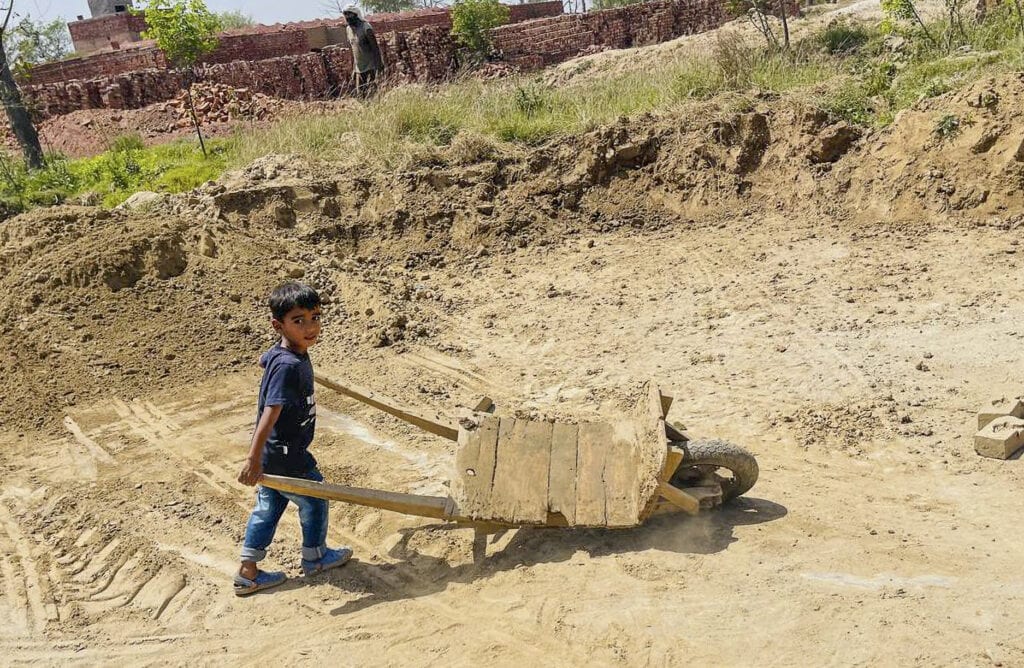
Haroon Aslam, pastor of Power Prayer Ministries for the past five years, travels across Pakistan to preach and has long ministered to the brickmakers of this region. Many of them are Christian, he said, and persecuted.
“When I see that children are working, I cry for them and ask the Lord for help,” he said.
Haroon dreams of buying families out of bonded labor, but his own congregation of about 200 members struggle themselves.
The church’s last offering was about 3,000 Pakistani rupees, he said, which converts to roughly $10.70. Still, they’re determined to help even if it means relieving suffering in smaller ways. Haroon brings food bags to the community when he can to supplement their diets because they never have enough food.
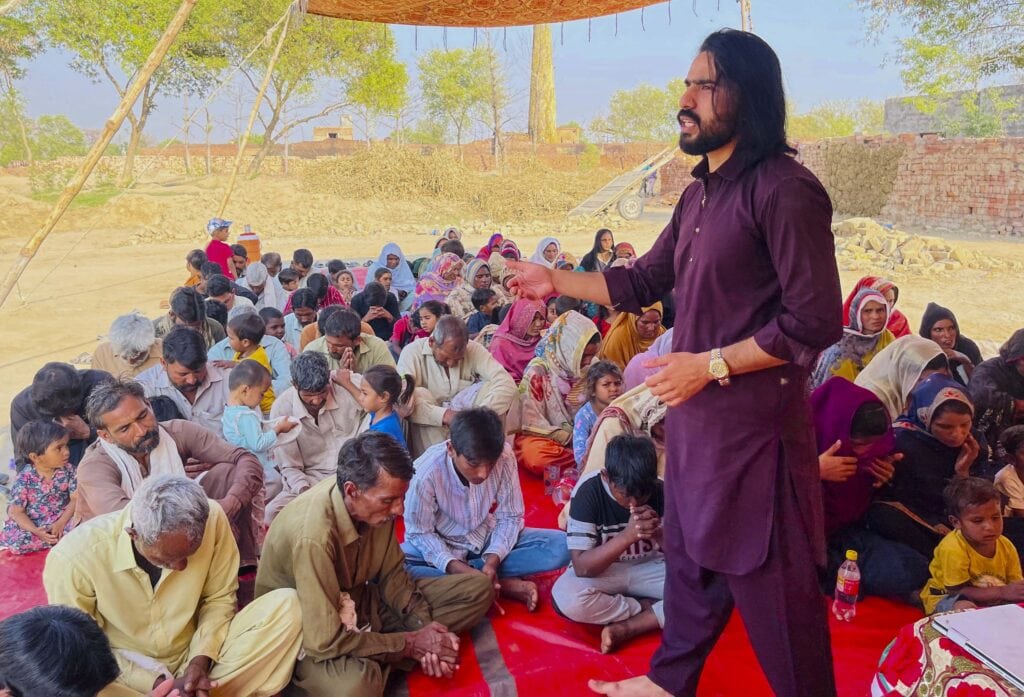
Earlier this year, one of Haroon’s American friends sent him a link to a website for WaterStep, the global leader in safe water innovation. Haroon started following the organization on Instagram. He sent a message asking for help building four washrooms near the brick factories.
He wanted the brickmakers and poor farmers to have a place to use the bathroom without having to walk far away to relieve themselves and for women to have privacy in their menstrual health management. He also wanted to bring safe water to the community.
“There are many children, especially, who are sick because of the water,” Haroon said. “There’s no clean water here.”
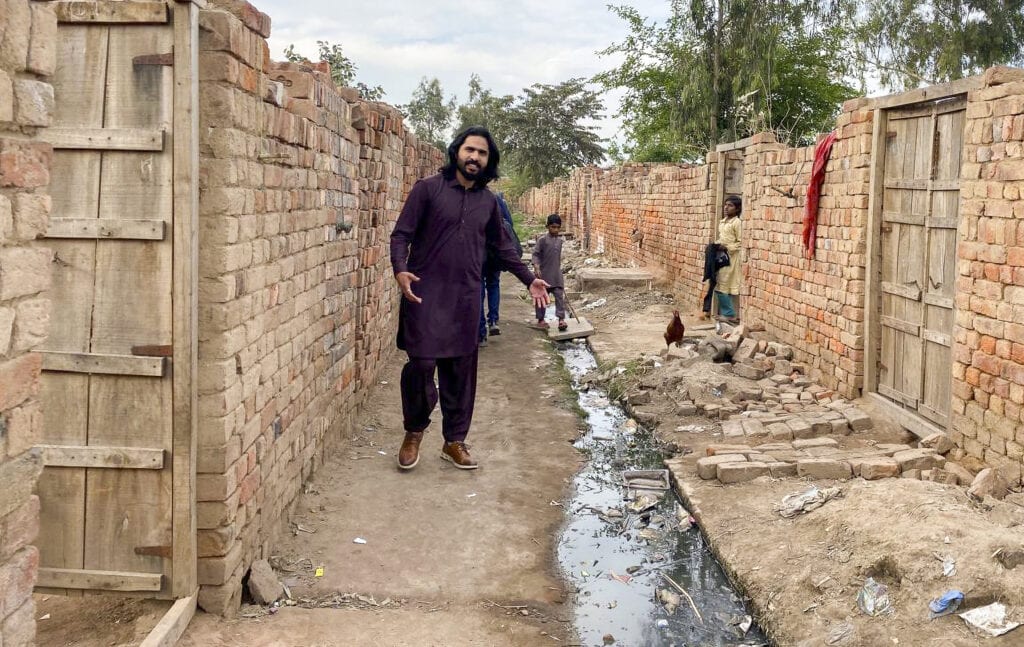
If he couldn’t free them all, he could at least bring them some sense of dignity and better health.
With the help of supporters, WaterStep agreed to build the washrooms. WaterStep will repair a well and pump the water from it to two tanks. A water treatment system provided by the organization will make the water safe to drink. And BleachMakers will keep the washrooms and cooking utensils sanitized.
Haroon said the project has brought a modicum of change to the lives of people in this area. They still worry about the future, still have daily suffering and struggle with backbreaking work, day after day. But with these projects, they have gained a sense of dignity, safety and better health. And they know that someone out in the world cares they exist.
“They are very thankful for this help,” Haroon said. “I’m pastor of these people here. A pastor is like the father of the house. So, if the children are happy, the father is automatically happy. I’m greatly thankful to you and all the team for starting this project here in Pakistan.”
He hopes it’s the start of more change to come.
“My plan is that we free families from the brick factory,” he said.
How will he do it?
Haroon offered a broad smile and a shrug.
“I don’t know,” he said. “I’m praying for that. By faith, we can do everything. By the grace of God, we walk by faith. And we believe that God will do something.”
